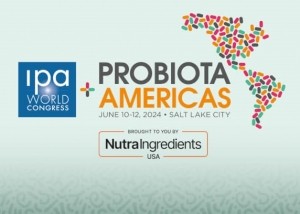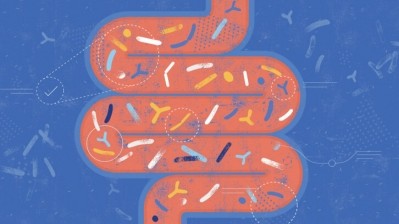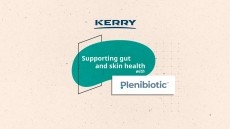Q&A: National Animal Supplement Council president talks state of pet biotics

Bill Bookout, president and founder of the National Animal Supplement Council (NASC), says there has been year-over-year growth in demand for biotic-based supplements for general pet health. It mirrors the increase in human consumption of products centered on the microbiome.
Acknowledging this trend, NASC will give more attention to the pet microbiome during the organization’s annual conference in Florida next week than it has at previous meetings. One workshop delves into the postbiotic influence on the microbiome and related effects on horses. Another tackles the pet probiotic purchasing journey.
In advance of the conference, Bookout said there are unique challenges to creating supplements focused on the pet microbiome and that the industry still desires more research to create the most optimal products for animals.
NIU: What are the reasons the pet supplement industry focuses on the pet microbiome? Are they similar to the reasons why the industry invests in the human microbiome?
BB: I think it's largely the same. The pet industry in general is a fast-follow industry. So, for the most part, whatever you see that has popularity on the human side of the industry is going to rapidly progress and come over to the pet side, whether that’s joint products or essential fatty acids or biotics.
I also think COVID really increased the visibility and importance of talking about the immune system, and the microbiome is the largest immune supporting organ in the body, human or animal.
At the end of the day, we want to accomplish the same things for our pets that we want to have accomplished for ourselves. We want to live a long, happy, healthy life to the maximum degree possible.
I think the microbiome is critical to good health. It's certainly an important aspect of proper metabolization of nutrients and a strong and healthy immune system are all basically rooted in the microbiome. More and more people are realizing that a healthy microbiome is one of the keys to long, happy, healthy life maximizing longevity.
NIU: What are some unique considerations for companies offering pet microbiome supplements?
BB: Probiotics are only beneficial if there are live, viable microorganism, and on the pet side, there are processing considerations. On the human side, you can have a capsule with millions of colony-forming units. But on the pet side, probiotics are typically put in a delivery form that's different than the human form, usually in a soft chewable. The process is typically a cold processing, so you don't have thermal degradation of ingredients that are susceptible, like probiotics are. If you're going to give probiotics to pets, it should really be done as a supplement. You don't see as many pet foods with probiotics because pet food has a kill step where it's heated to get rid of pathogens like salmonella. However, it also knocks out good things like probiotics. So, there are processing considerations that apply to pet food and pet products that are not present in the human industry.
NIU: What percentage of the pet supplement market is comprised of probiotics?
BB: I would say between probably 8% and 12% of the market is probiotics. That’s my estimate. The largest category is joint products. Joint products are about 40% of the market probiotic. Other popular product segments include essential fatty acid products.
NIU: Does pet microbiome research originate from human microbiome research, or are the two independent of each other?
BB: Companies usually try to leverage human data and human research to support the pet industry, and the reason is because the human dietary supplement industry is about $60 billion. The pet supplement industry for dogs and cats is about $2.5 billion. There's not the economic horsepower that drives specific pet research.
Also, the courts have held that you can't patent protect natural substances. Now, you may be able to get a proprietary probiotic strain that you could protect via intellectual property, but there's not a lot of IP protection in the supplement industry in general. That limits research.
The other reason is that if you have research, it often needs to support a specific benefit. This would be outside of structure function, so even if you do the research, you're limited. The industry is limited in its ability to make claims for diagnose, prevent, treat, care or mitigate diseases.
NIU: What do you think are the most interesting products coming down the pet biotics pipeline?
BB: Digestive enzymes and probiotics are commonly combined, but I think a probiotic with some other functional ingredients for liver health, kidney health or joint health is what will trend in the future.
Everybody is always looking for the next big thing. I think specific strains that are proprietary to specific companies with probiotics will offer competitive differentiators.
IPA World Congress + Probiota Americas 2024
Bill Bookout will participate in a panel discussion on the distinctive requirements for pet supplementation in biotic applications at the upcoming IPA World Congress + Probiota Americas, June 10-12 in Salt Lake City. The three-day event will also feature sessions covering Microbiome Modulation to Support Women’s Health, Prebiotics, Healthcare Practitioners, Retailer Insights, Companion Animals, Tech Advances, and much more.
For more information and to register, click HERE.
Speakers are affiliated with: The University of California, Kroger, Whole Foods Market, Nouri, Maiome, SuperGut, Nestlé Health Science, FTC, FDA, Health Canada, University Milan, Georgetown University, International Probiotics Association, Beneficial Microbes Consultancy, SPINS, Seventure Partners, National Animal Supplement Council, Örebro University, Novonesis, IFF, ADM, EpiCor/ Cargill, Kaneka Probiotics, BioGrowing, Solnul, CanBiocin, Swift Strategy Group, Morinaga, Jona, Preebio, HelloBiome, BioMilq, Lawrence Berkeley National Laboratory and many more.















